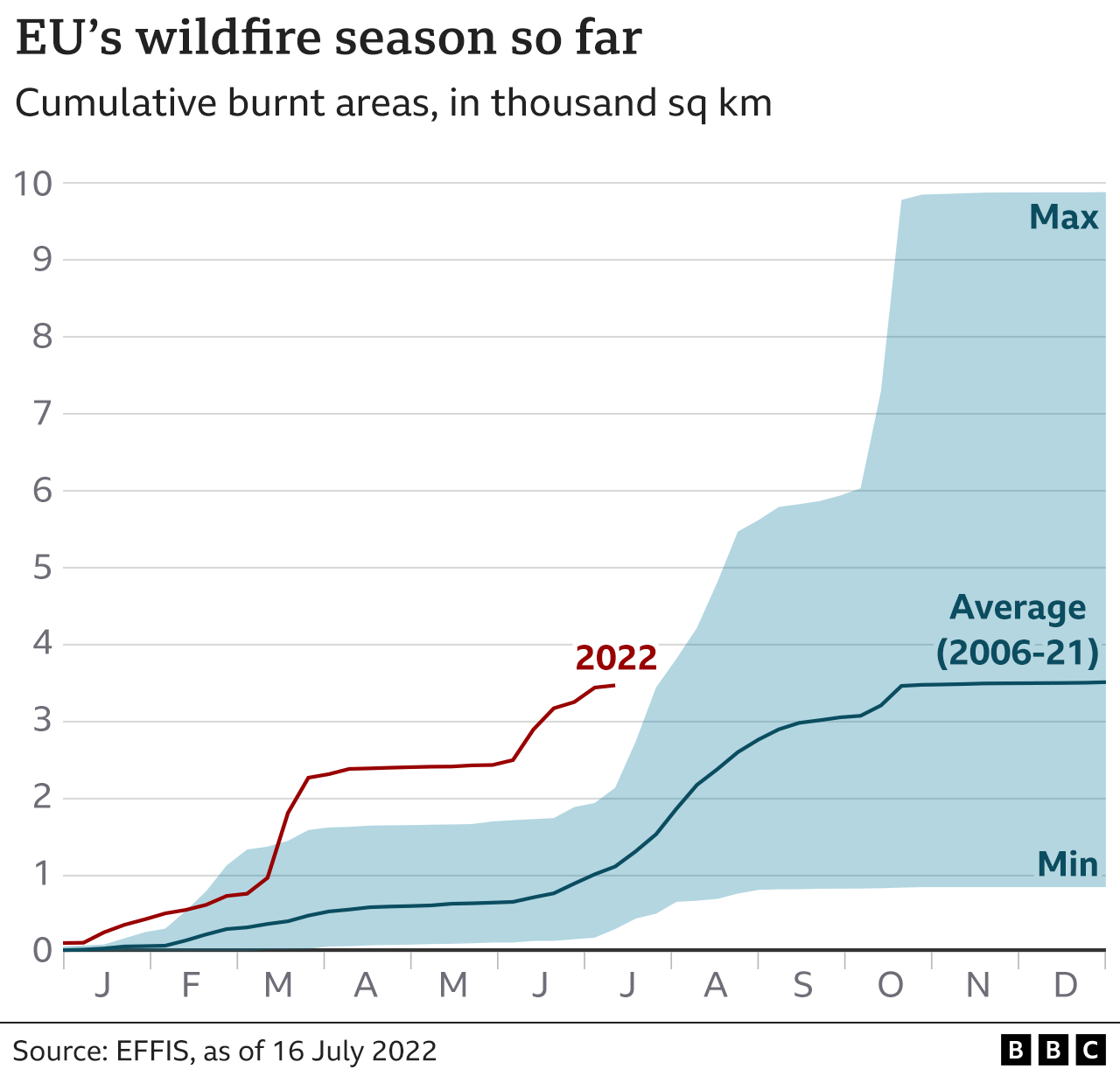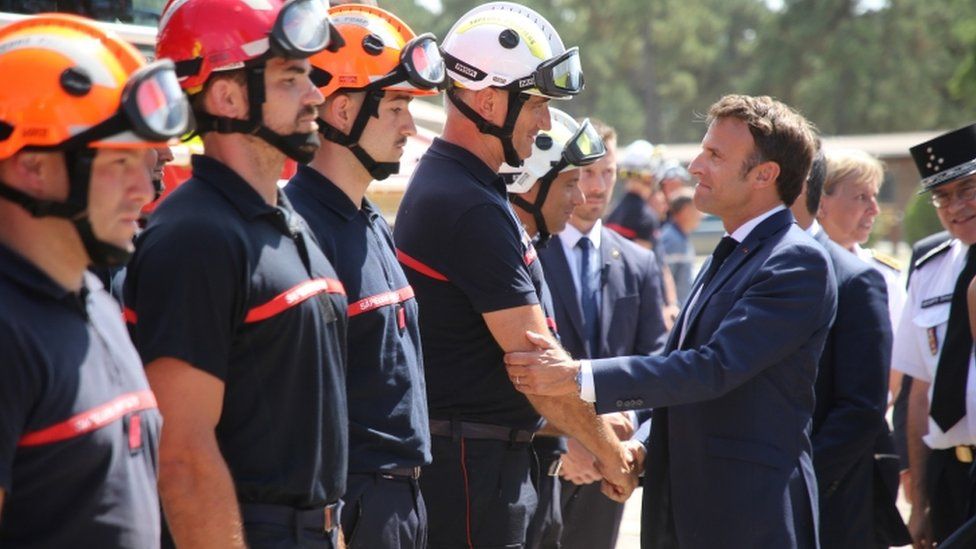Wildfires are raging across Europe, where a heatwave has intensified drought conditions.
Though temperatures have cooled in France and the UK, firefighters are still tackling blazes in Greece, Spain and Italy.
The fires in France’s badly hit south-west have started to be brought under control.
And as the heatwave moves north-east, low water levels are hampering transport on rivers in Germany.
Heatwaves have become more frequent, more intense, and last longer because of human-induced climate change. The world has already warmed by about 1.1C since the industrial era began and temperatures will keep rising unless governments around the world make steep cuts to emissions.
More than 1,000 deaths have been linked to the extremely high temperatures in Portugal while in Spain it is at least 500.
In Greece, firefighters were tackling a blaze on Mount Penteli, to the north-east of the capital Athens.
In the nearby town of Pallini, state electricity workers were scrambling to remove burnt pylons, the BBC’s Kostas Koukoumakas reports.
Takis Panagopoulos, 87, woke up at 03:00 (00:00 GMT) to a red sky. “The fire surrounded the house and I managed to leave the area by car,” he said.
Mr Panagopoulos, who was for many years an amateur actor, said his house could be rebuilt but his collection of more than 1,200 theatre books had been turned to ashes.
Firefighting helicopters were dropping water, one after the other. Winds in excess of 80km/h (49mph) have made it harder to contain the fire.
Almost all the water carriers in the region have been deployed. Greece’s fire service said additional support was expected from other regions.
Hundreds of people have been evacuated from surrounding areas, including eastern Gerakas, which is home to nearly 30,000 people. A paediatric hospital and the National Observatory of Athens have also been vacated.


France has had some of the worst fires, particularly in the southwest region of Gironde, though conditions for tackling them have improved. Temperatures fell from 40C (104F) on Tuesday to the mid-20s on Wednesday.
“The conditions are favourable” to tackle the blazes, the mayor of La Teste-de-Buch – one of the affected areas in Gironde – told the BBC. Patrick Davet added, however, that it was necessary to stay “humble” as conditions could change.
Visiting fire crews in Gironde, French President Emmanuel Macron said the shift in climate, which is leading to more wildfires, would force the EU to take “structural decisions”.
Ahead of his arrival, one firefighter told BBC News he thought France had been underprepared. While he understood the planes needed were very expensive, similar fires would happen in the future and France needed to bite the bullet and invest, the unnamed firefighter said.
 IMAGE SOURCE,EPA
IMAGE SOURCE,EPASpain has also been battling multiple wildfires.
Though one in the central province of Zamora has been brought under control, according to the local government, two large wildfires are still out of control in the north-western region of Galicia. A fire in the Gredos mountain range is also spreading east towards the Madrid region, the BBC’s Guy Hedgecoe reports.
Some 5,600 hectares (13,800 acres) of land have also been burnt in the north-eastern region of Aragon.
In Portugal, some 900 firefighters were fighting two active fires in the country’s far north.
Major fires have also affected Italy in the past days, causing the country to be put on its highest heatwave alert for Thursday. Italian infrastructure has also been heavily impacted, with temporary closure of a key rail route between Rome and Florence, Italian media report.
As the heatwave moves north-eastwards, parts of Germany have recorded 38C (100.4F) on Wednesday, according to its national weather service, DWD.
Despite the hot temperatures, heavy rain, strong gusts of wind of around 100km/h and even hail are forecast.
Thunderstorms are also expected in Belgium.
On Wednesday, Sweden recorded its hottest day of the year, with temperatures in the south-west reaching 32C.
Source: BBC News


